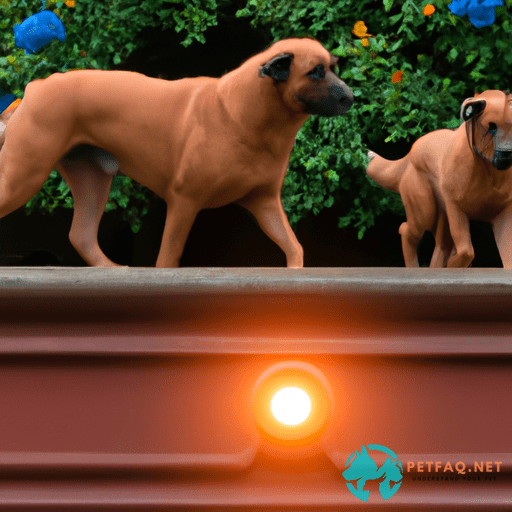Reactive behavior in dogs can be triggered by a variety of factors, ranging from fear and anxiety to territorial instincts and a lack of socialization. Understanding these triggers is essential for effective reactive dog training, which aims to modify the dog’s behavior and reduce its reactivity.
One of the most common triggers for reactive behavior in dogs is fear. Dogs may become fearful of new people, animals, or situations, and may react aggressively as a way of defending themselves. This fear can be rooted in past experiences, such as a traumatic event or lack of socialization during puppyhood. Additionally, some dogs may have a genetic predisposition to fear and anxiety.
Another trigger for reactive behavior in dogs is territorial instincts. Dogs are naturally territorial animals and may perceive other dogs or people as a threat to their territory. This can be especially common in breeds that were originally bred for guarding or protection, such as German Shepherds or Rottweilers.
A lack of socialization can also contribute to reactive behavior in dogs. When dogs are not exposed to a variety of people, animals, and situations during their early development, they may become fearful and reactive when encountering new stimuli later in life. Socialization is an essential part of reactive dog training, as it helps dogs feel more comfortable and confident in new situations.
Other triggers for reactive behavior in dogs can include frustration, pain, and a lack of exercise or mental stimulation. Dogs that are not given adequate outlets for their energy and natural instincts may become reactive as a result of pent-up energy or boredom.
Effective reactive dog training involves identifying these triggers and working to modify the dog’s behavior through positive reinforcement techniques, such as counter-conditioning and desensitization. This can involve exposing the dog to the trigger in a controlled environment and rewarding calm behavior, gradually increasing the intensity of the stimulus as the dog becomes more comfortable.
Overall, there are many potential triggers for reactive behavior in dogs, and understanding these triggers is an important part of reactive dog training. By working with a qualified trainer and implementing positive reinforcement techniques, it is possible to modify a dog’s behavior and reduce its reactivity over time.
Read more:Effective Reactive Dog Training Techniques

Related Questions
- How do you potty train a puppy as part of obedience training?
- How can I teach my dog to not pull on the leash during walks?
- What are some free tips for teaching my dog to not bark excessively?
- How can you train a hunting dog to work with other dogs and hunters in the field?
- Canadian Working Dog Federation (CWDF): This organization offers Schutzhund/IPO/IGP titles and competitions for several breeds in Canada.
